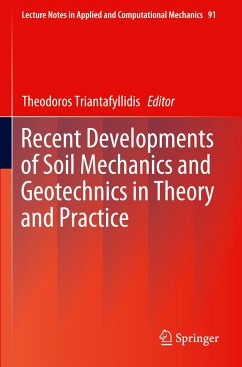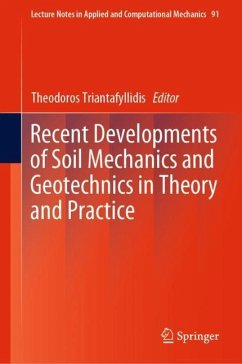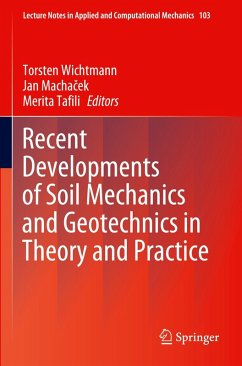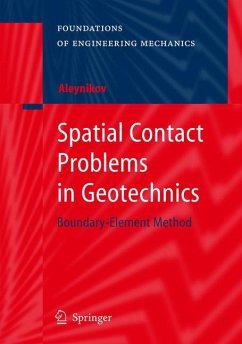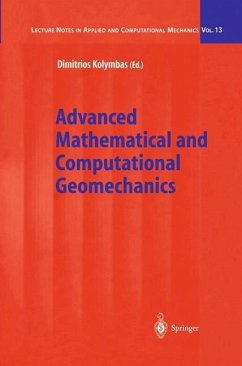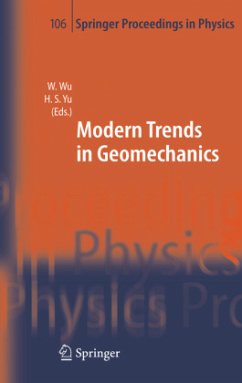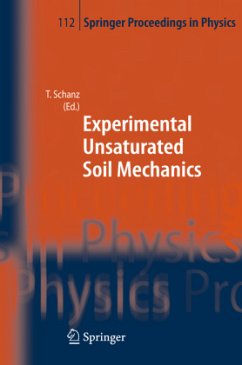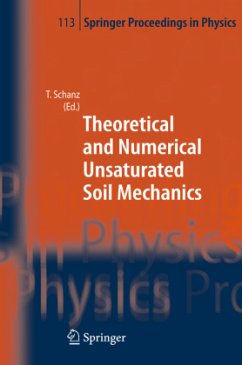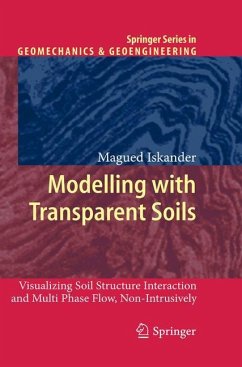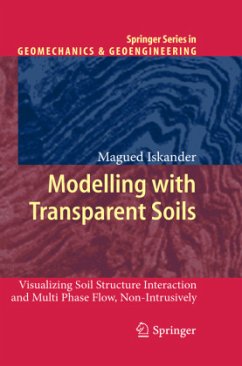
Recent Developments of Soil Mechanics and Geotechnics in Theory and Practice

PAYBACK Punkte
76 °P sammeln!
This book provides essential insights into recent developments in fundamental geotechnical engineering research. Special emphasis is given to a new family of constitutive soil description methods, which take into account the recent loading history and the dilatancy effects. Particular attention is also paid to the numerical implementation of multi-phase material under dynamic loads, and to geotechnical installation processes. In turn, the book addresses implementation problems concerning large deformations in soils during piling operations or densification processes, and discusses the limitati...
This book provides essential insights into recent developments in fundamental geotechnical engineering research. Special emphasis is given to a new family of constitutive soil description methods, which take into account the recent loading history and the dilatancy effects. Particular attention is also paid to the numerical implementation of multi-phase material under dynamic loads, and to geotechnical installation processes. In turn, the book addresses implementation problems concerning large deformations in soils during piling operations or densification processes, and discusses the limitations of the respective methods. Numerical simulations of dynamic consolidation processes are presented in slope stability analysis under seismic excitation. Lastly, achieving the energy transition from conventional to renewable sources will call for geotechnical expertise. Consequently, the book explores and analyzes a selection of interesting problems involving the stability and serviceability of supporting structures, and provides new solutions approaches for practitioners and scientists in geotechnical engineering. The content reflects the outcomes of the Colloquium on Geotechnical Engineering 2024 (Geotechnik Kolloquium), held in Bochum, Germany in March 2024.





